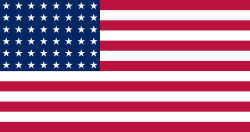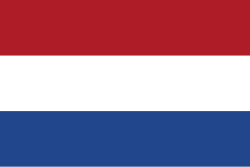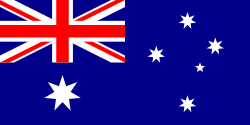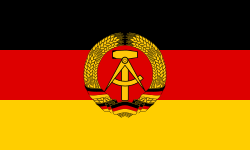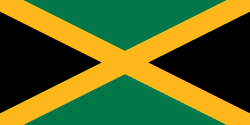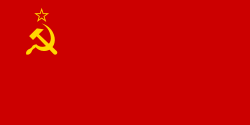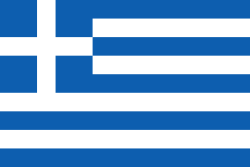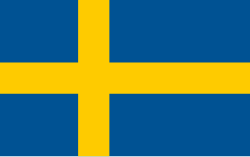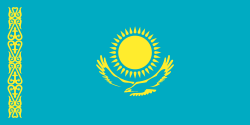Shirley Strickland

| Shirley Strickland | ||
| Friidrott, damer | ||
| Guld | Helsingfors 1952 | 80 meter häck |
| Guld | Melbourne 1956 | 80 meter häck |
| Guld | Melbourne 1956 | 4 x 100 meter |
| Silver | London 1948 | 4 x 100 meter |
| Brons | London 1948 | 80 meter häck |
| Brons | London 1948 | 100 meter |
| Brons | Helsingfors 1952 | 100 meter |
Shirley Strickland, född 18 juli 1925, död 11 februari 2004, var en australisk friidrottare som tävlade under 1940-talet och 1950-talet i kortdistanslöpning och häcklöpning.
Strickland deltog totalt i tre olympiska spel och vann totalt sju medaljer.
Hennes första olympiska spel var Olympiska sommarspelen 1948 i London där hon blev bronsmedaljör på både 100 meter och 80 meter häck. Hon deltog även i det australiska stafettlag som slutade på andra plats på 4 x 100 meter efter Nederländerna.
Vid Olympiska sommarspelen 1952 kom hennes första guldmedalj då hon vann 80 meter häck; dessutom blev det ett brons på 100 meter. En ännu större framgång blev Olympiska sommarspelen 1956 där hon försvarade sitt guld på 80 meter häck och dessutom deltog i det stafettlag som blev guldmedaljörer på 4 x 100 meter.
Förutom framgångarna i olympiska spelen vann hon tre guld och två silver vid samväldesspelen 1950.
Efter den aktiva karriären arbetade hon med det australiska olympiska laget inför OS 1968 och 1976. Hon var även politiskt aktiv för partiet Australian Democrats. Vid invigningen av Olympiska sommarspelen 2000 var hon en av de sista som bar den olympiska elden inne på arenan.
Källor
| |||||||||||||||||||
Media som används på denna webbplats
De olympiska ringarna, med genomskinlig bakgrund.
The Canadian Red Ensign used between 1921 and 1957.
This image has compared for accuracy (mainly colors) using an image from World Statesmen. The only change is making the maple leaves green from red. This image has compared for accuracy (mainly colors) using an image from World Statesmen. The most recent version of this image has changed the harp into one with a female figure; see [http://flagspot.net/flags/ca-1921.html FOTW
The Canadian Red Ensign used between 1921 and 1957.
This image has compared for accuracy (mainly colors) using an image from World Statesmen. The only change is making the maple leaves green from red. This image has compared for accuracy (mainly colors) using an image from World Statesmen. The most recent version of this image has changed the harp into one with a female figure; see [http://flagspot.net/flags/ca-1921.html FOTW
US Flag with 48 stars. In use for 47 years from July 4, 1912, to July 3, 1959.
Flag of Jamaica. “The sunshine, the land is green, and the people are strong and bold” is the symbolism of the colours of the flag. GOLD represents the natural wealth and beauty of sunlight; GREEN represents hope and agricultural resources; BLACK represents the strength and creativity of the people. The original symbolism, however, was "Hardships there are, but the land is green, and the sun shineth", where BLACK represented the hardships being faced.
Författare/Upphovsman: F l a n k e r, Licens: CC BY-SA 2.5
Flag of the Kingdom of Sardinia (1851-1861) and of the Kingdom of Italy (1861-1946). Use: Civil flag and ensign. In a governmental or a military context, the crowned version (see Crowned version) was always used (as State flag and naval ensign).
Flag of the unified Team of Germany for the Olympic Games, 1960–1968.
Författare/Upphovsman: Scroch, Licens: CC BY-SA 3.0
Flag of Bulgaria (1971-1990). Flag of Bulgaria with Bulgarian coat from 1971.
Författare/Upphovsman: Scroch, Licens: CC BY-SA 3.0
Flag of Bulgaria (1971-1990). Flag of Bulgaria with Bulgarian coat from 1971.
Författare/Upphovsman: Melburnian, Licens: CC BY 2.5
Statue of Shirley Strickland outside the Melbourne Cricket Ground. Sculptor: Louis Laumen.


